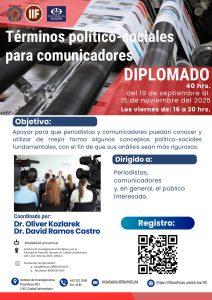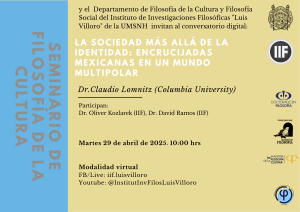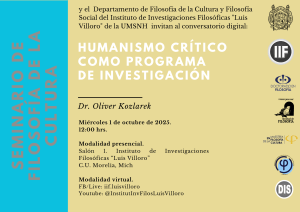Departamento de Filosofía de la Cultura y Filosofía Social

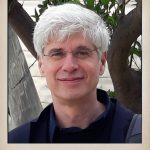 Coordinador: Dr. Oliver Kozlarek
Coordinador: Dr. Oliver Kozlarek
Contacto: +52 (443) 3223500 ext. 4186 +52 (443) 3278193
Correo: oliver.kozlarek@umich.mx
Cubículo: edif. C4C planta alta
-
Presentación
-
Publicaciones
-
Enlaces
-
Eventos
-
Equipo de trabajo
-
Convocatorias
-
Textos
Nuestro mundo se encuentra en una fase de profundos cambios y transformaciones:
1) El orden global de las relaciones internacionales muestra signos de cambio significativo. Después de tres décadas de hegemonía estadounidense en términos económicos, militares, pero también culturales hay señales de una transformación hacia un nuevo orden “multipolar” que cuestiona fundamentalmente la modernidad occidental. ¿Qué significa esto para el mundo en general, pero especialmente para América Latina y México? ¿Qué papel desempeñarán las sociedades y las culturas del Sur Global en estos procesos de transformación? ¿Qué papel pueden desempeñar? ¿Cuáles son las consecuencias culturales de estos procesos? ¿En qué medida desafían estos procesos a las disciplinas representadas en nuestro Instituto, sobre todo a la filosofía, pero también, en un sentido más amplio, a las humanidades?
2) Otro reto que va de la mano de los cambios culturales fundamentales se resume bajo la sigla de la digitalización y, más recientemente, de la “inteligencia artificial” e incluso de la “vida artificial”. ¿Hasta qué punto alterarán estos cambios la vida humana en el planeta? Una cuestión fundamental y, en última instancia, profundamente filosófica que deriva de estos temas es hasta qué punto la idea del ser humano se está transformando en el curso de estos acontecimientos. ¿Cómo debatimos estos sucesos y de qué herramientas de crítica disponemos?
3) Por último, podemos observar que las formas de organización política y social están cambiando. Hace apenas 30 años, los procesos de democratización en muchas partes del mundo (“democratización de la tercera ola”) hacían prever que el mundo podría estar acercándose al “fin de la historia” (Fukuyama). Hoy se piensa que el entusiasmo por el progreso puede haber sido prematuro y que hay signos de una “regresión” hacia sistemas políticos cada vez más autoritarios. Además, se pueden observar procesos de erosión de la sociedad civil. A ello contribuyen las políticas identitarias, tanto de derechas como de izquierdas, que, en última instancia, conducen a una fragmentación cada vez mayor del tejido social en nuestras sociedades. ¿Qué retos plantean estos temas para las disciplinas representadas en nuestro Instituto?
4) Los temas anteriores representan un reto para las orientaciones normativas en la política y la sociedad, pero también en las ciencias sociales y culturales. “Justicia”, “reconocimiento”, pero también “razón” y “racionalidad” son algunas de las propuestas para definir las exigencias normativas de nuestras sociedades actuales. En el marco de la investigación de nuestro Departamento, se tratará de explorar las posibilidades actuales de orientaciones normativas que, de una u otra manera, se vinculan con las tradiciones del humanismo. Se prestará especial atención a la posibilidad de actualizar el “humanismo crítico” que se puede extraer de la obra de la Escuela de Frankfurt.
Áreas de investigación:
-Retos en un mundo multipolar.
-Retos de la digitalización y de la inteligencia artificial y las consecuencias para los imaginarios del ser humano.
-Retos y transformaciones de las formas de vida sociales y políticas.
-Retos para las orientaciones normativas – Hacia un Humanismo Crítico.
-Our world is in a phase of profound changes and transformations:
1) The global order of international relations is changing significantly. After three decades of US hegemony in economic, military, but also cultural terms, there are signs of a transformation towards a new “multipolar” order that questions Western modernity. What does this mean for the world in general, but especially for Latin America and Mexico? What role will the societies and cultures of the Global South play in these transformation processes? What role can they play? What are the cultural consequences of these processes? To what extent do these processes challenge the disciplines represented in our Institute, especially philosophy, but also, in a broader sense, the humanities?
2) Another challenge that goes hand in hand with fundamental cultural changes is summarized under the terminology of digitalization and, more recently, “artificial intelligence” and even “artificial life.” To what extent will these changes alter human life on the planet? A fundamental and ultimately deeply philosophical question deriving from these issues is to what extent the idea of the human being is being transformed in the course of these developments. How do we debate these events and what tools of critique do we have at our disposal?
3) Finally, we can observe that the forms of political and social organization are changing. Just 30 years ago, the democratization processes in many parts of the world (“third wave democratization”) led to the prediction that the world might be approaching the “end of history” (Fukuyama). Today it is thought that the enthusiasm for progress may have been premature and that there are signs of a “regression” towards increasingly authoritarian political systems. In addition, processes of erosion of civil society can be observed. Contributing to this are identity politics and new populisms, which ultimately lead to an increasing fragmentation of the social fabric in our societies. What challenges do these issues pose for the disciplines represented in our Institute?
4)The above issues represent a challenge for normative orientations in politics and society, but also in the social and cultural sciences. 'Justice,' 'recognition,' but also ‘reason’ and 'rationality' are some of the proposals for defining the normative demands of our current societies. Within the framework of our Department's research, we will explore the current possibilities for normative orientations that, in one way or another, are linked to the traditions of humanism. Special attention will be paid to the possibility of updating the “critical humanism” that can be drawn from the work of the Frankfurt School.
Research areas:
-Challenges in a multipolar world.
-Challenges of digitalization and artificial intelligence and the consequences for human imaginaries.
-Challenges and transformations of social and political forms of life.
-Challenges for normative orientations -Towards a Critical Humanism
- Oliver Kozlarek. The Critical Humanism of the Frankfurt School as Social Critique (The Frankfurt School in New Times). Lexington Books, 2024: https://rowman.com/ISBN/9781666946024/The-Critical-Humanism-of-the-Frankfurt-School-as-Social-Critique

- 2024. Humanismo Crítico como investigación social crítica. A propósito del centenario del Insituto de Investigaciones Sociales en Frankfurt
https://www.revistavalenciana.ugto.mx/index.php/valenciana/article/view/749 - 2024. La actualidad de la filosofía como filosofía social
https://publicaciones.umich.mx/revistas/devenires/ojs/article/view/976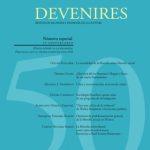
- 2025. Global Critical Theories (con Gustavo Leyva Martínez)
https://link.springer.com/book/9783658471842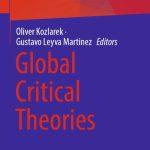
- Devenires No. 52
https://publicaciones.umich.mx/revistas/devenires/ojs/issue/view/64 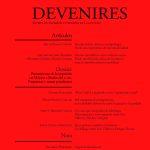
- ¿Qué es el humanismo crítico? en Revista Inflexiones
http://filosoficas.umich.mx/iif/wp-content/uploads/2025/10/Inflexiones-2025-Kozlarek.pdf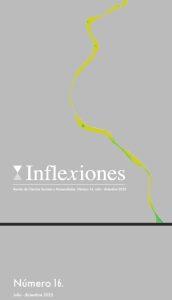
- Grupo de Trabajo COMECSO: Retos y posibilidades para la teoría social en el siglo XXI: https://www.comecso.com/eventos-de-comecso/retos-y-posibilidades-teoria-social-siglo-xxi
- Devenires. Revista de Filosofía y Filosofía de la Cultura: https://publicaciones.umich.mx/revistas/devenires/ojs
Primera sesión del seminario del Grupo de Trabajo de COMECSO: Retos y posibilidades para la teoría social para el siglo XXI
https://www.comecso.com/grupos-de-trabajo/teoria-social
ISTC (International Social Theory Consortium): Annual Conference of the International Social Theory Consortium. Hosted by the University of Tennessee-Knoxville (Online): http://socialtheory.org/istc-2025.html
Masas y multitudes en el pensamiento social argentino: aportes para una sociología política del neoliberalismo de masas. Presenta el Dr. Pablo de Marinis. Pablo de Marinis es Licenciado en Sociología (Facultad de Ciencias Sociales, Universidad de Buenos Aires, Argentina, 1991) y Dr. Phil. (Institut für Soziologie, Universität Hamburg, Alemania, 1997). Es profesor titular regular de la cátedra de “Sociología Sistemática” en la Carrera de Sociología de la Fac. de Cs. Soc. de la Universidad de Buenos Aires. Es investigador principal del CONICET, con sede de trabajo en Instituto de Investigaciones Gino Germani (Fac. de Cs. Soc., UBA). Dirige el “Grupo de Estudios sobre Problemas y Conceptos de la Teoría Sociológica”, en la misma sede. Ha dirigido numerosos proyectos y realizado variadas publicaciones sobre sus campos de especialización. Las publicaciones pueden descargarse de https://uba.academia.edu/PablodeMarinis. Ha dictado numerosos seminarios de posgrado (maestría y doctorado) en diversas universidades nacionales y extranjeras (México, Brasil, España, Alemania) así como en las sedes Argentina y México de la FLACSO. Actualmente se encuentra en Alemania, realizando una estancia de 6 meses en Hamburgo y Kassel financiada por el Hamburg Institut for Advanced Studies y CALAS.
Seminario Tiempo y dominación. Hacia otras temporalidades y luchas por el tiempo en la actualidad.
 David Ramos Castro:
David Ramos Castro:
Doctor en Antropología Social (Universidad Complutense de Madrid, 2022). Ha hecho trabajo de campo en Mozambique, Timor-Este, España y, actualmente, en México, donde es investigador posdoctoral-SECIHTI en la Maestría de Filosofía «Samuel Ramos» y el Instituto de Investigaciones Filosóficas «Luis Villoro» de la UMSNH con un proyecto sobre experiencia y ciudad en Morelia y A Coruña (España). Escribe para medios mexicanos y españoles de prensa y radio, y en revistas especializadas. Entre sus artículos de divulgación, destacan «Humanización, deshumanización, transhumanización» (Revista cultural Entreletras. 2019); «El mundo en llamas: crímenes locales, violencias globales» (Revista cultural Entreletras, 2024); «Los sentidos de la ciudad» (Regla de tres, 2025); «Ciudad, lenguaje, errancia» (Regla de Tres, 2025). Entre sus artículos en revistas indexadas, «Pensar lo impensable: apunte antropológico sobre la guerra» (Razón y fe, 2022); «The rising of extramodernity and its cultural metaphors: savages, cyborgs, and robots» (Religación, 2025); «Interpretación, crítica y antropología: hacia una experiencia de extramodernidad» (Devenires. Revista de Filosofía y Filosofía de la Cultura, 2025), y «Visibles sacrificios: la visibilidad mediática como sacrificio contemporáneo» (FILHA, 2025). Sus temas de investigación versan principalmente sobre «cultura, fama y visibilidad»; «imaginarios urbanos, experiencia y tecnociencia», «antropología de la violencia» y «antropología cultural de México». Su interés por la antropología simbólica y su relación con la filosofía, la historia y la estética le ha llevado a formarse en disciplinas artísticas y a buscar una unión entre la investigación, la teoría crítica y el arte.
 Brenda Ramírez Benavides:
Brenda Ramírez Benavides:
Estudiante de la Licenciatura de Lengua y Literatura Hispánicas de la UMSNH. Actualmente cursa el último semestre de la carrera. Forma parte del equipo del departamento a través del programa de Ayudantes del Sistema Nacional de Investigadoras e Investigadores (SNII) del SECIHTI, fortaleciendo así su formación académica en el ámbito de la investigación humanística.
Invitamos a propuestas en el marco de nuestros programas de Maestría en Filosofía de la Cultura y Doctorado en Filosofía, así como proyectos de investigaciones posdoctorales sobre los siguientes temas (algunas sugerencias):
- Retos en un mundo polar desde la filosofía social y la filosofía de la cultura.
- Teorías críticas que emergen desde el Sur global en un mundo en transición hacia un nuevo orden multipolar.
- Retos de la digitalización y de la inteligencia artificial y las consecuencias para los imaginarios del ser humano.
- La inteligencia artificial como eje que transforma el concepto de humanidad, ¿cuáles son las implicaciones éticas y filosóficas que surgen desde el Sur global?
- La redefinición de lo humano con el auge de la “inteligencia artificial” y de la “vida artificial” desde una perspectiva de la filosofía social y la filosofía cultural.
- ¿Qué significa filosofía social? Investigación teórica y metodológica sobre filosofía social.
- Investigaciones teóricas sobre posibilidades para recuperar un concepto normativo de “sociedad”.
- “Humanismo crítico” como fundamento normativo para la filosofía social.
- Retos para las disciplinas humanísticas frente a los desafíos globales como la fragmentación del tejido social y la polarización de la vida política en tiempos de crisis.
